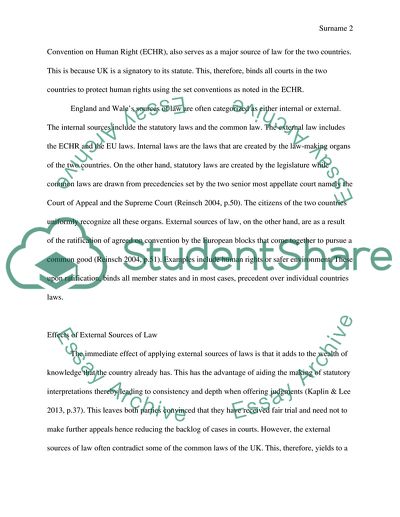Cite this document
(“The Different Source of Law in England and Wales Essay”, n.d.)
The Different Source of Law in England and Wales Essay. Retrieved from https://studentshare.org/law/1663697-to-provide-a-comprehensive-description-of-the-main-sources-of-law-for-the-england-wales-legal-system-you-should-identify-not-only-the-internal-sources-of-law-but-also-assess-the-effect-of-external-sources-of-law
The Different Source of Law in England and Wales Essay. Retrieved from https://studentshare.org/law/1663697-to-provide-a-comprehensive-description-of-the-main-sources-of-law-for-the-england-wales-legal-system-you-should-identify-not-only-the-internal-sources-of-law-but-also-assess-the-effect-of-external-sources-of-law
(The Different Source of Law in England and Wales Essay)
The Different Source of Law in England and Wales Essay. https://studentshare.org/law/1663697-to-provide-a-comprehensive-description-of-the-main-sources-of-law-for-the-england-wales-legal-system-you-should-identify-not-only-the-internal-sources-of-law-but-also-assess-the-effect-of-external-sources-of-law.
The Different Source of Law in England and Wales Essay. https://studentshare.org/law/1663697-to-provide-a-comprehensive-description-of-the-main-sources-of-law-for-the-england-wales-legal-system-you-should-identify-not-only-the-internal-sources-of-law-but-also-assess-the-effect-of-external-sources-of-law.
“The Different Source of Law in England and Wales Essay”, n.d. https://studentshare.org/law/1663697-to-provide-a-comprehensive-description-of-the-main-sources-of-law-for-the-england-wales-legal-system-you-should-identify-not-only-the-internal-sources-of-law-but-also-assess-the-effect-of-external-sources-of-law.


